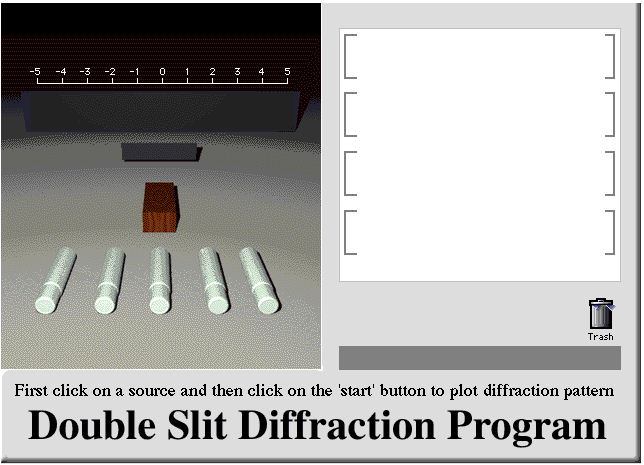
Now, you will complete a simulation of an experiment which at first thought seems rather strange. A double slit experiment using electrons. This type of experiment can be done, but the equipment is rather expensive. Open the Double Slit program with this link. When the program is open the screen should look like the figure below.
The tube shaped objects at the bottom are sources of different types of
particles. As you move the cursor across them, the names of the
particles will appear. Click on the source tube labeled Electrons
on the left side of the screen. Click Start to see what happens. Describe
the pattern below.
? Which pattern(s) — light, waves or BBs — does the
pattern for electrons resemble?
? What can you conclude about the behavior of electrons
in a Double Slit experiment?
Similar experiments resulted in a conclusion that electrons sometimes
behave as waves. This result was surprising but inescapable. As we shall
see, it is confirmed in many situations. First, let us see how this
pattern changes with the energy of the electron. Keeping other variables
fixed try at least four different energies and record the distance between
consecutive dark areas on the screen. Electron Energy (eV) Distance
between dark area.
? How does the distance between dark areas change as
the energy increases?
? For the plastic waves look at how the distance
between zeros changed with wave-length. Use that information to describe
below how the electron’s wavelength changes as the energy increases.
In the next activity we will use all of the results from this one to
connect the wave properties of electrons to other properties such as
momentum and energy.
Previous page | 1 2 3